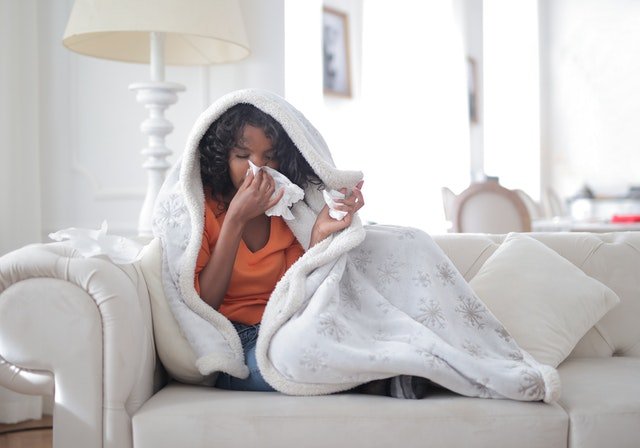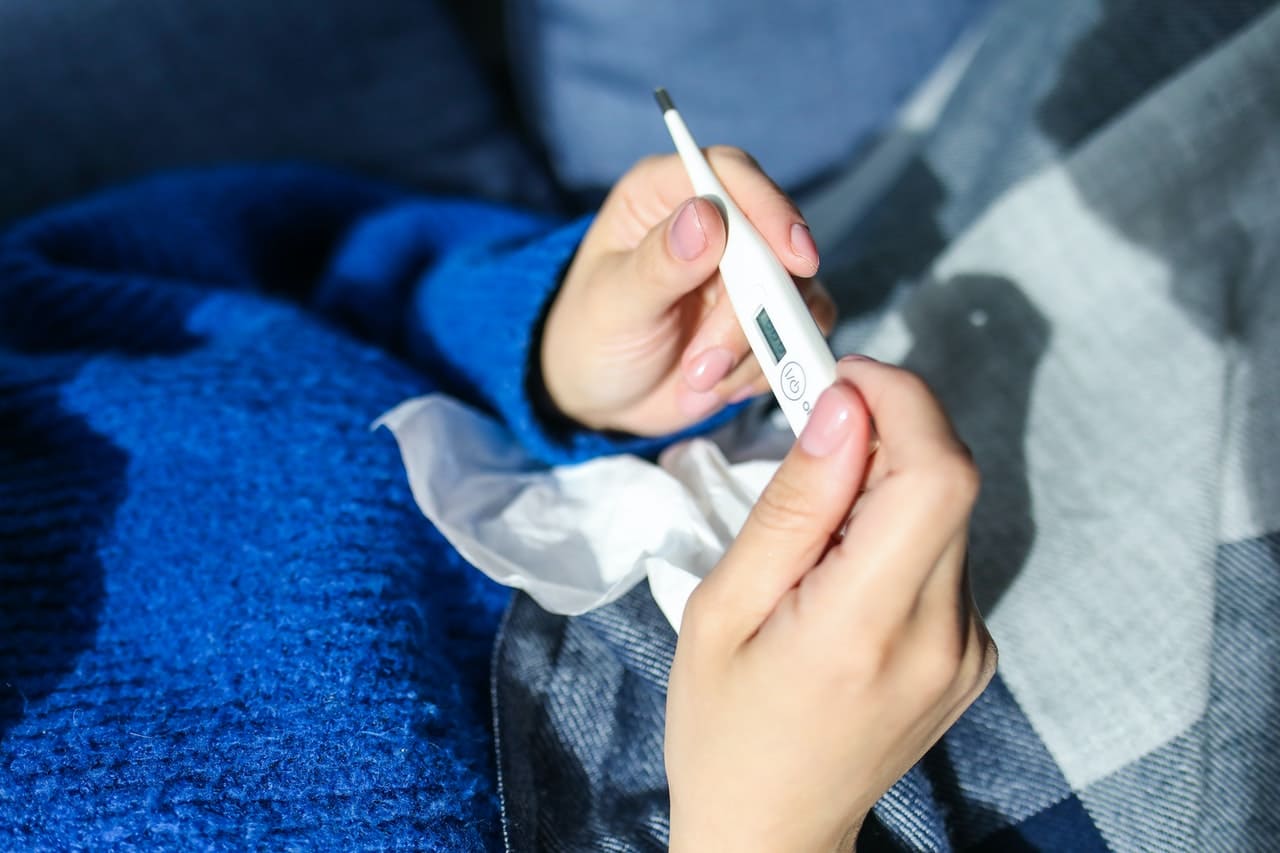Can I feel Chills Without Fever?
Chills occur in every person during infectious diseases. Along with chills, there is an increase in temperature. In this case, trembling is a defence mechanism that helps to quickly overcome the pathogen and retain heat inside the body. However, it happens that chills occur in a healthy person, and the body temperature does not increase.
This might be caused due to Coronavirus. However, there can be several other reasons too. In this article, you will learn in what cases other than coronavirus, there is a chill without fever.
Common Causes of Chills Without Fever
1. Endocrine Disorders
The mechanism for the development of chills with endocrine disorders is a change in metabolic processes. Hyper-or low release of hormones leads to improper regulation of heat production processes, pathological vasospasm, or excessive neuromuscular conduction.
A typical state of chills is during a hypertensive crisis or during menopausal hormonal instability, especially during hot flashes. The way out of this situation will be drug replacement therapy.
It will normalize hormonal balance and eliminate extreme symptoms. Endocrine disorders can be not only pathological but also physiological. A woman may experience chills during periods of cyclical hormonal changes.
2. Diabetes
The feeling of coldness and chills in diabetes mellitus is due to a drop in glucose utilization and a decrease in heat production. In addition, there is impaired blood circulation and degenerative changes in the vessels.
Thinning of the vascular wall and slowing down of blood flow causes a subjective sensation of coldness and coldness of the extremities.
Warm tea and a blanket will not help such patients. More often, with diabetes mellitus, chills appear at night. The very state of hypoglycemia can also cause chills.
3. Anemia
People who are constantly freezing should get examined and determine the level of hemoglobin in the blood. Additional symptoms of this disorder will be a general weakness, brittle nails, hair loss, and dizziness.
Anemia is also possible with trauma or internal bleeding. In this case, a person will have pallor of the skin, malaise, dizziness, and a feeling of cold extremities.
4. Alcohol Intoxication
After drinking large doses of alcohol, with chronic alcoholism, or drug abuse, a person begins to tremor of the limbs and can shiver all over the body.
Tremor indicates a severe stage of poisoning and the presence of a large number of toxins in the blood. The tremors begin in the palms and can be noticed by others.
A large amount of toxins leads to a malfunction of neuromuscular regulation and pathological transmission of impulses. If there is a trembling in the hands, taking sorbents will not be enough.
Chills are the sign of substance abuse which can intensify if a person does not leave drugs. The chills are most noticeable on the hands, but can also affect the body.
Its severity leads to the inability of the patient to perform even simple actions. You can check for tremors by asking the patient to write a few words. In severe conditions, complications begin in the form of depression of brain functions and muscle deformities.

5. Acute Respiratory Viral Infections
Some respiratory diseases can occur without or with a slight increase in body temperature. In this case, the chills happen by a standard mechanism (vasoconstriction and muscle contraction), which is aimed at retaining heat inside the body. This process occurs naturally since pathogenic microorganisms survive worse at higher temperatures.
6. Psycho-Emotional Overload
Stress is one of the most common causes of chills without fever. After strong experiences, a person will feel bad, and the nervous system gets activated. It will lead not only to a subjective feeling of cold but also to a real muscle contraction.
Discomfort disappears after stabilization of the psycho-emotional period. If stress causes muscle contractions, the patient should take a course of sedatives.
7. Hypothermia of the Body
Exposure to cold forces the body to actively produce heat and accelerate biochemical processes. This condition not only causes tremors but also leads to blue nails, blueness of the lips, and the general pallor of the skin.
As a result of direct exposure to cold, the total body temperature drops to 35 degrees and below. Therefore, the patient develops lethargy and fatigue.
Symptoms are due to narrowing of the blood vessels and impaired conduction of signals from the central nervous system. Spasm leads to a slowdown in blood circulation, metabolic disorders, and the body’s inability to warm distant parts of the body.
To eliminate such a chill, it is enough just to warm the person. It is impossible to soar your feet with hot water with severe hypothermia. If you cannot get rid of the symptoms of hypothermia at home, you need to call a doctor.
8. Tuberculosis
Most often, chills with tuberculosis appear in the evenings. The patient cannot independently associate chills and tuberculosis. Therefore, a doctor’s consultation, in this case, is mandatory. Additional symptoms are persistent cough, weakness, and shortness of breath.
A concomitant symptom is the patient’s persistent sweating, which occurs because the body is trying to lower the body temperature. However, removing fluid through the pores does not relieve the condition and does not eliminate chills.
When confirming the diagnosis, a person will face complex and long-term treatment. Its success largely depends on the correction of the lifestyle, the state of immunity, and the stage of the disease.
9. Increased blood pressure
A change in blood pressure in either direction leads to chills. Patients who suffer from persistent hypertension experience this symptom regularly. The feeling of coldness is due to impaired blood circulation due to excessive vasospasm and insufficient warming of the limbs.
Conclusion
Pay attention to the regularity, severity, and relationship of chills to your lifestyle. If you understand the reason, and the chills quickly pass and do not cause discomfort, you should not worry. But you can deal with the problem yourself.
In incomprehensible situations or with a significant deterioration in well-being, you cannot do without the help of a doctor. It is important to consult a doctor and get proper medication.








